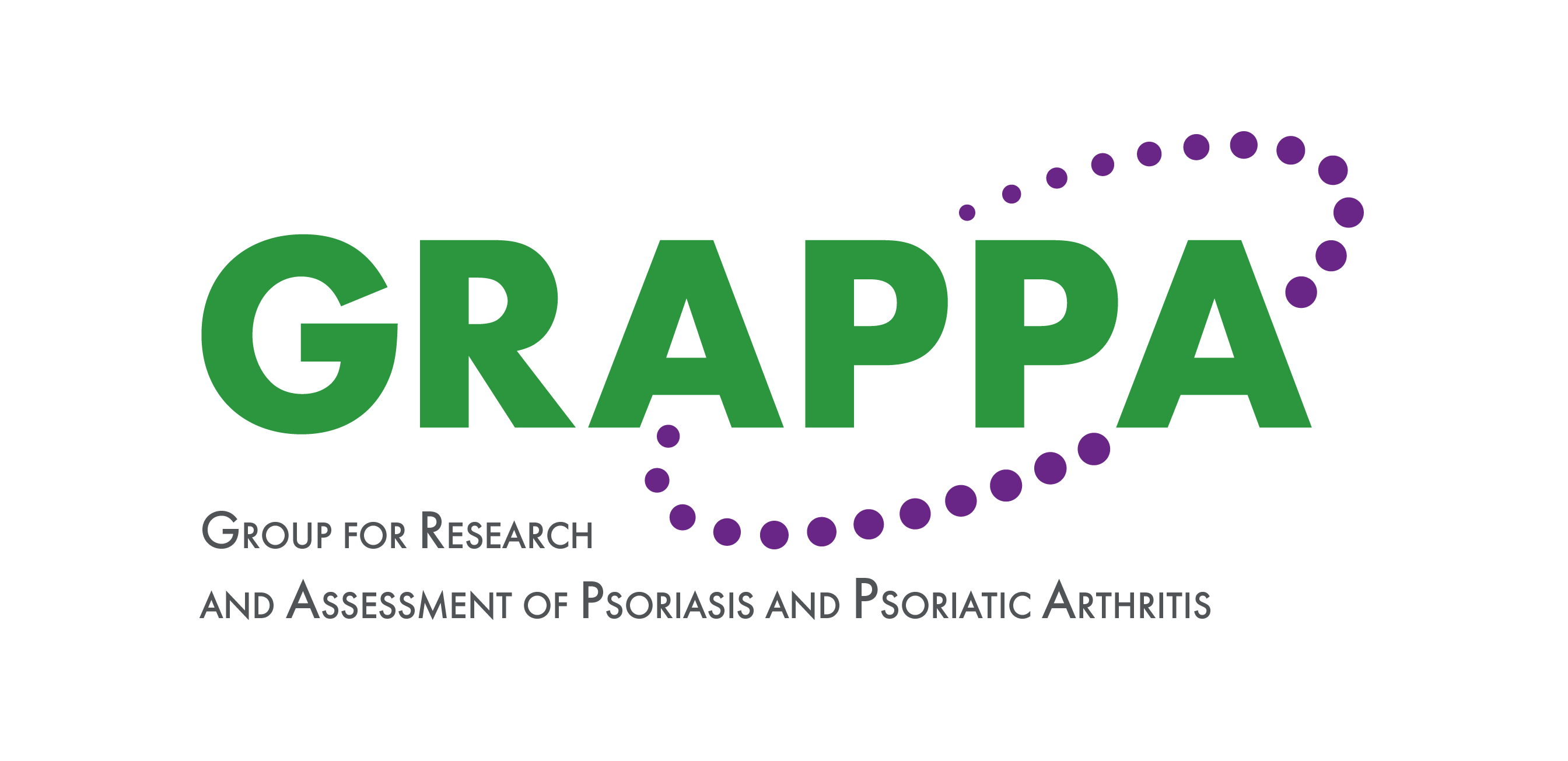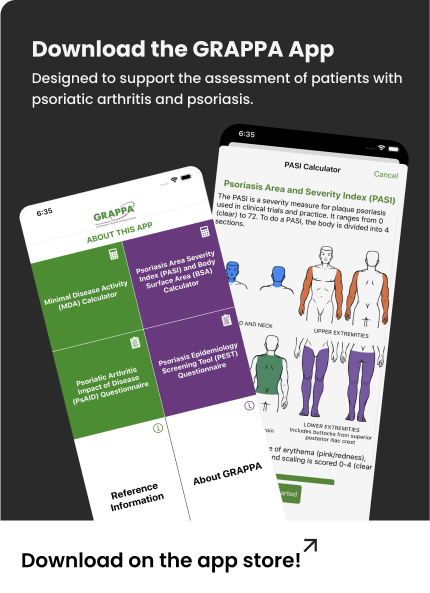HIPPOCRATES

Setting up a single integrated database combining the cohorts and datasets of the most important European PsA studies and establish a Europe-wide library of relevant clinical biosamples
Brief description of the HIPPOCRATES Study:
Psoriatic arthritis (PsA) is a chronic immune-mediated inflammatory disease that affects joints and other components of the musculoskeletal system, together with skin involvement, in an estimated 5-10 million individuals in the EU. The symptoms of the disease, including pain, joint stiffness and fatigue, can impact on many aspects of life including function and productivity. Overall, it is increasingly recognised that PsA is associated with multiple comorbidities, particularly those affecting mental health such as depression and those which promote the development of accelerated atherosclerosis and contribute to the observed increase in cardiovascular morbidity and mortality. PsA most commonly develops on a background of established skin and/or nail psoriasis, however it can be difficult to diagnose as there are no diagnostic criteria or laboratory tests available. This can contribute to diagnostic delay and poor outcomes. PsA is characterised by considerable heterogeneity with regards to clinical features, disease progression and response to targeted therapies. Future treatments will need to focus on earlier disease stages and be selected on the basis of detailed patient molecular profiling so as to limit poor long-term outcomes and possibly prevent the development of PsA altogether.
This is where HIPPOCRATES comes into play: the project is setting up a single integrated database combining the cohorts and datasets of the most important European PsA studies and establish a Europe-wide library of relevant clinical biosamples. HIPPOCRATES will also establish a large, prospective, observational study of 25,000 patients with psoriasis who will be recruited and followed on-line for development of PsA, with patient-centric blood sampling at defined intervals. Furthermore, the team of experts will identify sub-populations and endotypes and evaluate and validate newly discovered biomarker signatures for the early diagnosis of PsA, for the identification of psoriasis patients at risk of developing PsA, for the identification of PsA patients at highest risk of damage progression and for personalised or stratified treatment strategies so as to maximise treatment response. Overall, HIPPOCRATES places particular emphasis on the involvement of patients, clinicians, primary care practitioners, regulators, SMEs and relevant large industry to meet the needs of all stakeholders and to maximise the project’s impact.
Formed as a transdisciplinary consortium, the project team comprises 26 partner institutions from Belgium, Denmark, Germany, Ireland, Italy, Spain, Sweden, Switzerland, the Netherlands, the United Kingdom and the United States of America. Led by University College Dublin, the partners contribute a diverse range of backgrounds including clinical, scientific, data analytics, ethics, patient participation as well as SME and pharmaceutical industry expertise in pursuit of the ambitious goals set for the HIPPOCRATES project.
The practical tools developed by HIPPOCRATES will advance both early diagnosis and treatment of patients with PsA and ensure a better quality of life.
Study Main Contacts
Oliver FitzGerald
UCD - University College Dublin
Stephen Pennington
UCD - University College Dublin
Stefan Siebert
UGLA - University of Glasgow
Frances Mair
UGLA - University of Glasgow
Carl Goodyear
UGLA - University of Glasgow
Georg Schett
UERL - Friedrich Alexander University Erlangen- Nuremberg
David Simon
UERL - Friedrich Alexander University Erlangen- Nuremberg
Dirk Elewaut
VIB - VIB VZW
Frank Behrens
Fraunhofer - Fraunhofer Cluster of Excelllence Immune-Mediated Diseases CIMD
Michaela Köhm
Fraunhofer - Fraunhofer Cluster of Excelllence Immune-Mediated Diseases CIMD
Stefan Rüping
Fraunhofer - Fraunhofer Cluster of Excelllence Immune-Mediated Diseases CIMD
Rik Lorries
KUL - KU Leuven
Anne Barton
UMAN - University of Manchester
Laura Coates
UOXF - University of Oxford
Ciaran Duffy
ATT - ATTUROS Limited
Martha Whiteman
EURICE - European Research and Project Office GmbH
Nina Weiler
EURICE - European Research and Project Office GmbH
Juan D Canete
IDIBAPS - Consorci Institut D´investigacions Biomediques August Pi I Sunyer, Fundació Clínic per a la Recerca Biomèdica
Mikkel Ostergaard
RH - Rigshospitalet Copenhagen
Stefano Alivernini
UCSC - Università Cattolica Del Sacro Cuore
Denis O'Sullivan
GEU - GRAPPA-EU (Group for Research and Assessment of Psoriasis and Psoriatic Arthritis)
Maarten de Wit
EULAR - European Alliance of Associations for Rheumatology
Mark Ibberson
SIB - Institut Suisse de Bioinformatique
Vassilios Ioannidis
SIB - Institut Suisse de Bioinformatique
Dipak Kalra
IHD - The European Institute for Innovation through Health Data
Marleen van de Sande
AMC - Academisch Medisch Centrum Bij De Universiteit Van Amsterdam
Ewan Hunter
OBIO - Oxford Biodynamics Limited
Jochen Schwenk
KTH - Kungliga Tekniska Hoegskolan
Catherine Smith
KCL - King's College London
James Rudge
Neo - Neoteryx Limited
Christine Huppertz
NVS- Novartis
Bruno Boutouyrie-Dumont
NVS- Novartis
Owen Davies
UCB - Biopharma SRL
Matladi Ndlouvu
UCB - Biopharma SRL
Phil Scordis
UCB - Biopharma SRL
Thomas Lehmann
BMS - Bristol-Myers Squibb Company Corp
David Martin
Pfizer- Pfizer Limited
Project Coordinator(s):
Oliver FitzGerald
Newman Clinical Research Professor
University College Dublin, National University of Ireland, Dublin
Stephen Pennington
Professor of Proteomics
University College Dublin, National University of Ireland, Dublin
Efpia Lead:
Christine Huppertz
Novartis, Switzerland
Efpia Co-Lead:
Owen Davies
UCB - Biopharma SRL, Belgium
Project website and social media:
Website: https://hippocrates-imi.eu/
Twitter: https://twitter.com/hippocrates_imi
LinkedIn: https://www.linkedin.com/company/Hippocrates-imi
Funding

HIPPOCRATES has received funding from the Innovative Medicines Initiative 2 Joint Undertaking (JU) under grant agreement No. 101007757. The JU receives support from the European Union’s Horizon 2020 research and innovation programme and EFPIA.
To contact us regarding this study, please email Deborah Ann Warren [email protected]

